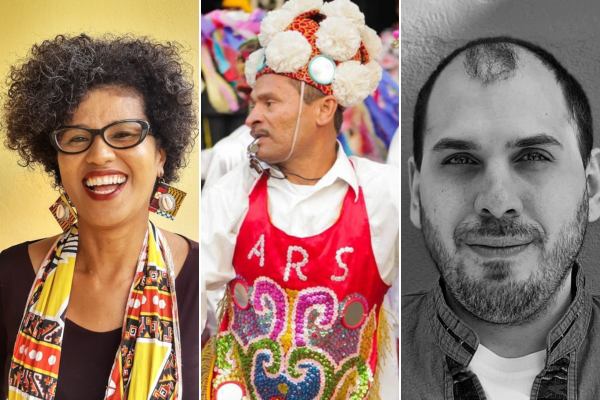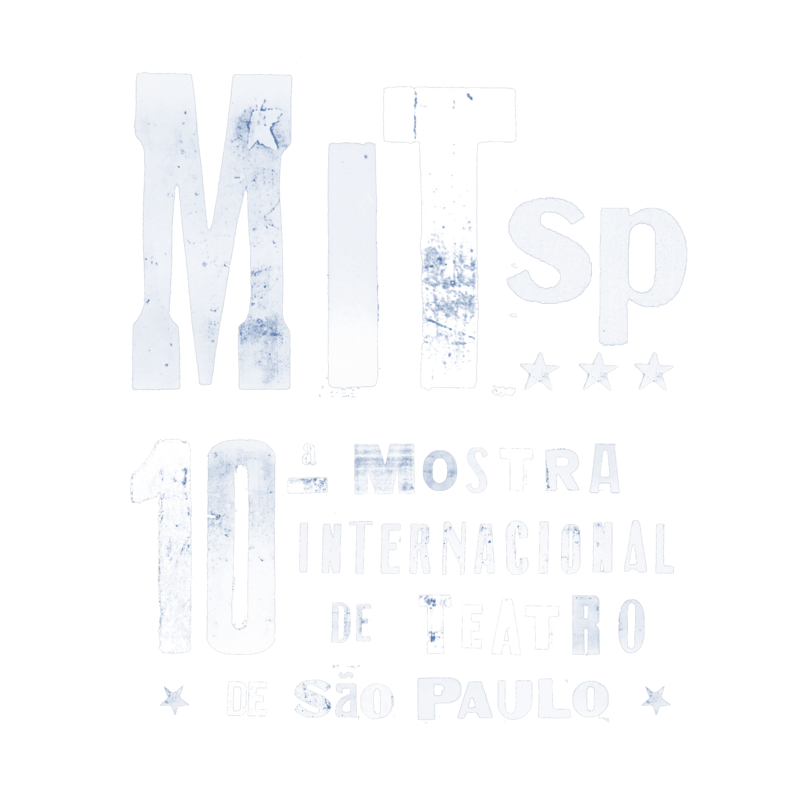Ações Pedagógicas
Think-Step-Wander: Popular Routes
Scenic Cultures and (So-Called) Popular Cultures: Dialogues, Exchanges, and Appropriations
WITH Alexandra G. Dumas and Mestre Aguinaldo Silva
MODERATED BY Rafael Galante
In Brazil, theater holds a central place within the field of scenic cultures. It is no coincidence that Brazilian hegemonic historiography marks its emergence by associating it with the catechization process during colonization. However, beyond theater, there are many possibilities for scenic existence and creation, many of which have been conceived and birthed in resistance to colonial hegemony. So-called popular cultures with scenic and diasporic characteristics serve as a starting point for a relevant discussion on their resistance, as well as a critical expansion on their invisibilization, epistemicide, and dominant appropriations—even by theater itself. How have the performing arts and the arts, in general, been engaging with so-called popular cultures? What kinds of interactive and respectful possibilities have been emerging in this field? These questions will set this discussion in motion.
WHEN AND WHERE
March 20, Thursday | 2:00 PM – 3:30 PM
Centro de Referência da Dança
Free Admission
Tickets: Online reservations starting on 02/25, Tuesday, at 5 PM, through the INTI platform. Remaining tickets will be distributed 1 hour before the performance at the theater box office.

ABOUT
Alexandra G. Dumas is a professor at the School of Theater at the Federal University of Bahia (UFBA) and at the UFBA Graduate Program in Performing Arts. She works as a professor and researcher in the fields of Afro-Brazilian popular cultures and Black-referenced scenic pedagogies and poetics. She is a maruja (member) of the Marujada de São Benedito in Prado, Bahia.
Mestre Aguinaldo Silva is a popular artist who comes from a background in sugarcane cutting. A dancer, musician, and performer of Cavalo Marinho and Maracatu Rural since the age of twelve, he is a figureiro (mask maker) in Cavalo Marinho Estrela de Ouro and puxador de cordão (lead singer) of Maracatu de Baque Solto Leão de Ouro, both based in Condado (PE). He began performing at age 12 in Cavalo Marinho Estrela do Oriente under Mestre Inácio Lucindo, playing the role of Dama. At 15, he joined Maracatu Leão da Floresta, then spent 19 years with Maracatu da Piaba, and has been performing for nearly 20 years with Maracatu Leão de Ouro under Mestre Biu Alexandre, his father, who also led Cavalo Marinho Estrela de Ouro de Condado. Aguinaldo is now the master of Cavalo Marinho and a figureiro. He has participated in several performances, including Consagração (2005) and Ilha Brasil (2006), and collaborated with groups such as Boi Marinho (Recife), Núcleo Manjarra (São Paulo), and PELEJA (Olinda).
Rafael Galante is a historian and ethnomusicologist. He has conducted research on the history of the African musical diaspora in collaboration with traditional communities in Brazil, Cuba, and Mozambique.

